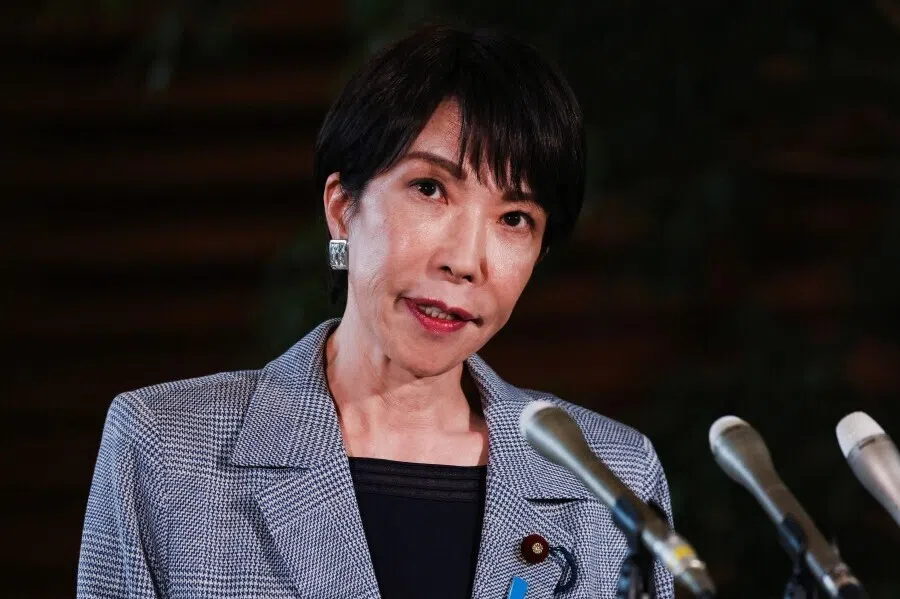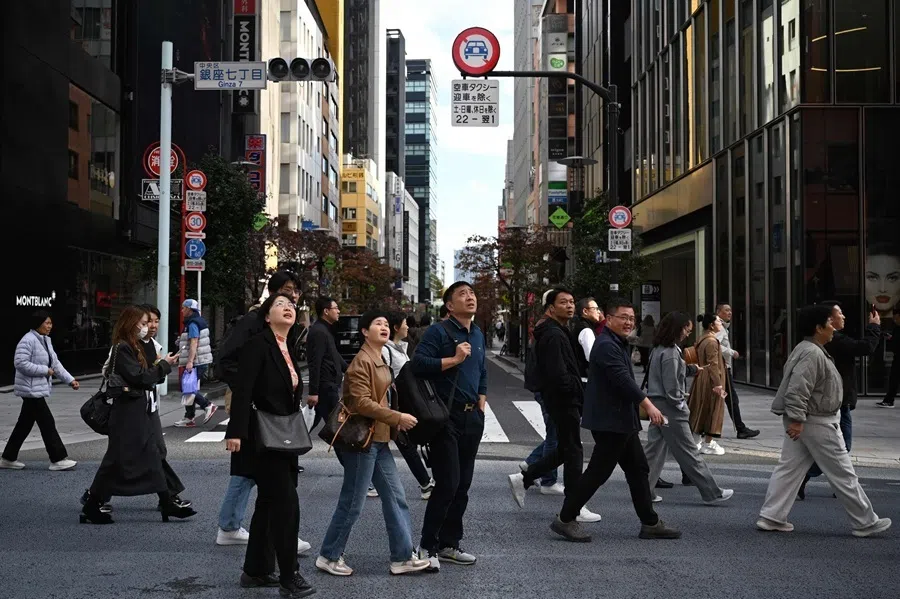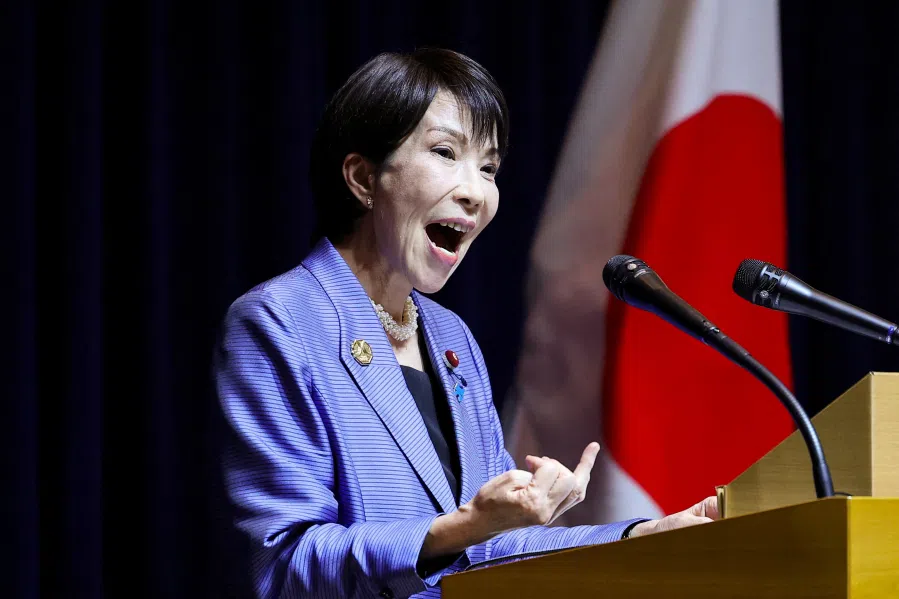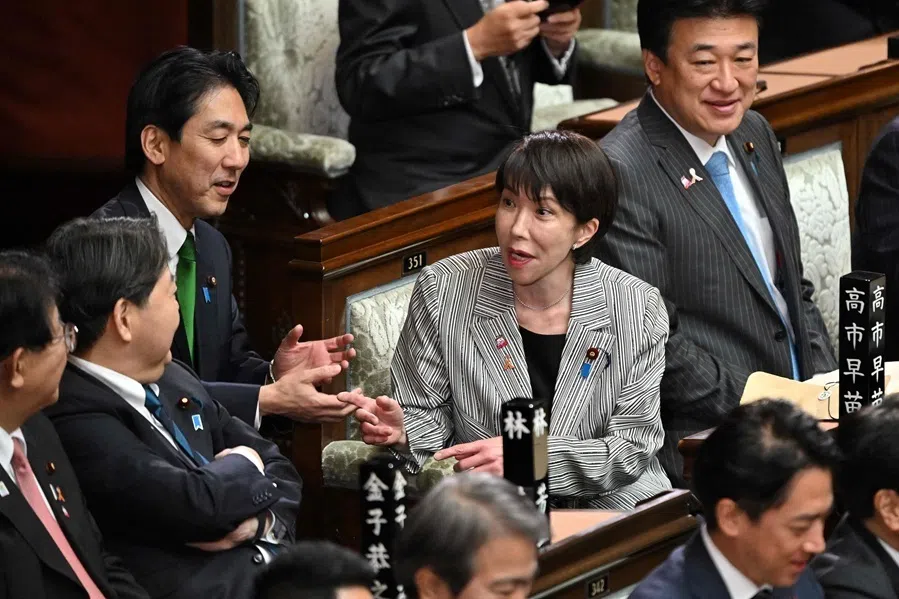Redefining the China-Nigeria partnership: From trade to development
Amid US-China tensions, the evolving China-Nigeria partnership highlights China’s shift from resource-focused ties to comprehensive economic partnerships. Under President Tinubu, Nigeria aims to diversify and leverage these ties for its development goals, says academic John Calabrese.
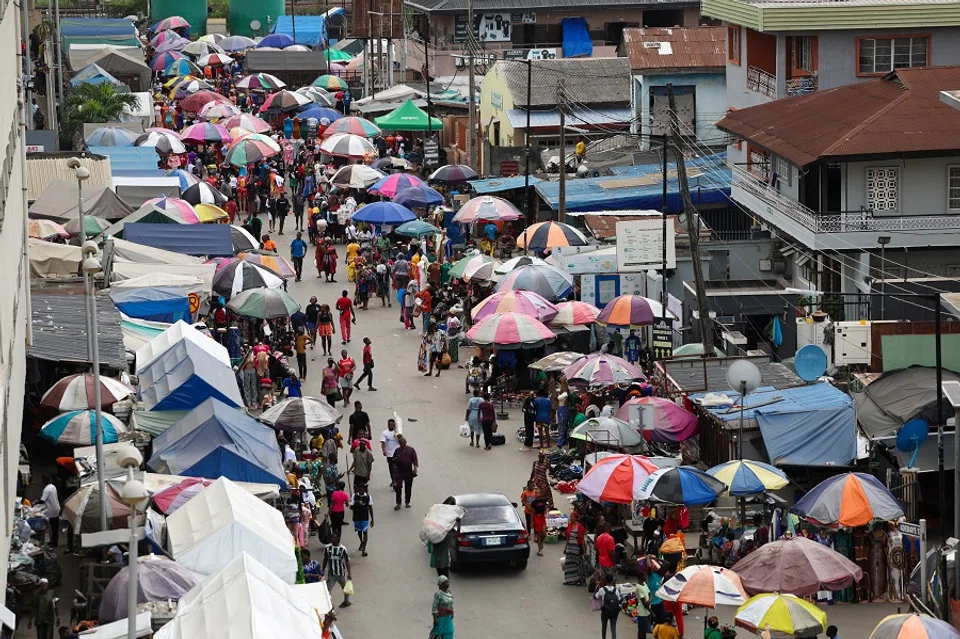
Nigeria and China are entering a new phase in their bilateral relationship — one that aims to move beyond the traditional, trade-heavy dynamic towards a mutually beneficial development model. Driven by Nigeria’s pressing need for industrial growth and infrastructure upgrades, President Bola Tinubu’s administration is recalibrating the nation’s foreign policy. Meanwhile, China is deepening its engagement in Nigeria as part of its broader global south strategy. This analysis explores how both nations are reshaping their relationship amid economic, geopolitical and domestic challenges.
The significance of the bilateral relationship is evidenced by Nigeria’s status as China’s largest engineering contract recipient in Africa and its position as the second-largest African export market after South Africa.
From resources to partnership
Nigeria occupies a privileged position within China’s broader African engagement strategy. Among the 53 African nations with which China maintains diplomatic relations, Nigeria consistently ranks as one of its most strategic partners.
The significance of the bilateral relationship is evidenced by Nigeria’s status as China’s largest engineering contract recipient in Africa and its position as the second-largest African export market after South Africa. This exceptional standing reflects Nigeria’s multifaceted importance to Beijing’s continental strategy — leveraging Africa’s most populous nation and largest economy as both an economic opportunity and diplomatic anchor.
The Nigeria-China partnership exemplifies China’s evolving approach to African engagement, which has gradually shifted from purely extractive relationships focused on resources to more comprehensive economic partnerships. Under President Xi Jinping’s vision of a “community of humankind”, China has strategically positioned Nigeria as a showcase for its approach to south-south cooperation.
Nigeria’s central role in China’s Forum on China-Africa Cooperation (FOCAC) initiatives further underscores its prominence in Beijing’s continental strategy, serving as both a gateway to West African markets and a demonstration of China’s infrastructure-led development model.
Nigeria’s path to reform
The evolving China-Nigeria relationship is a multifaceted story of strategic recalibration, economic transformation and renewed diplomatic engagement. Nigeria’s economic journey — from the boom periods of the 1970s and 1980s to the more recent prolonged crises — has been shaped by internal challenges such as declining oil prices, mismanagement, corruption and security issues.
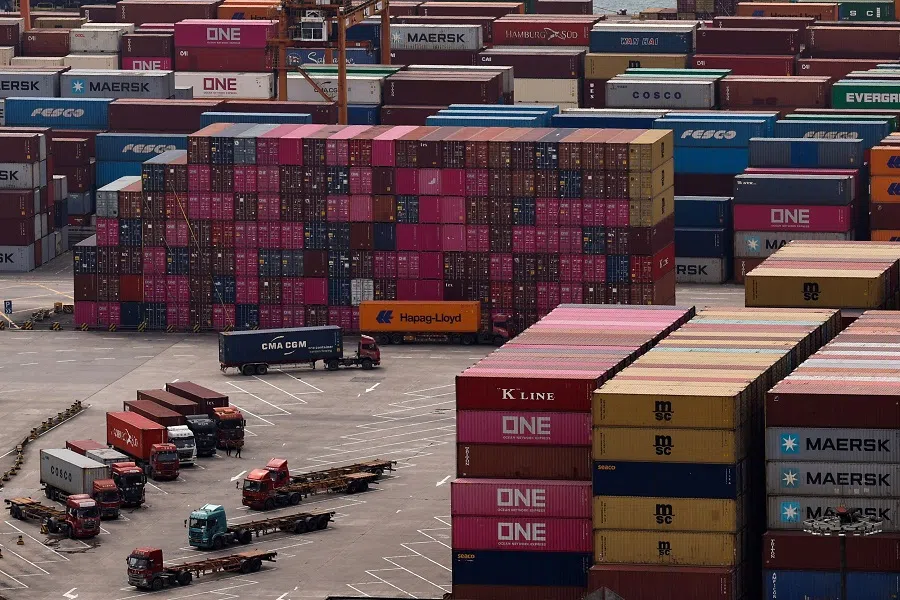
These persistent difficulties have driven a reorientation of Nigeria’s foreign policy. These historical challenges have left deep imprints on Nigeria’s industrial landscape and set the stage for today’s reforms. Under President Tinubu’s administration, the country has pursued an agenda that emphasises domestic development while strengthening international economic ties.
Historically, Nigeria’s economic interactions with China have been unbalanced, with Chinese exports comprising nearly 80% of bilateral trade.
Rebalancing ties: Nigeria’s new approach to China
A central element of Nigeria’s strategic shift is its enhanced engagement with China — a relationship that now extends beyond traditional trade to support broader development objectives.
Historically, Nigeria’s economic interactions with China have been unbalanced, with Chinese exports comprising nearly 80% of bilateral trade. As a result, Nigeria has long struggled with an overreliance on inexpensive products from China at the expense of its domestic industries.
Recognising the risks inherent in such a lopsided relationship, the Tinubu administration is steering the partnership with China toward a development-driven model — one focused on mobilising capital for critical infrastructure, promoting technology transfer and establishing industrial parks to drive economic diversification and growth.
BRI impact: Nigeria’s infrastructure surge
Both nations have aligned their strategic interests through significant financial and infrastructural commitments. Under China’s Belt and Road Initiative (BRI), Nigeria has seen a surge in investments in critical infrastructure projects. These initiatives range from large-scale railway expansions and port developments to the establishment of free trade zones that aim to stimulate industrial activity. Recent developments include the renewal of a US$2 billion three-year bilateral currency swap agreement, which is intended to facilitate trade by reducing the country’s reliance on the US dollar.
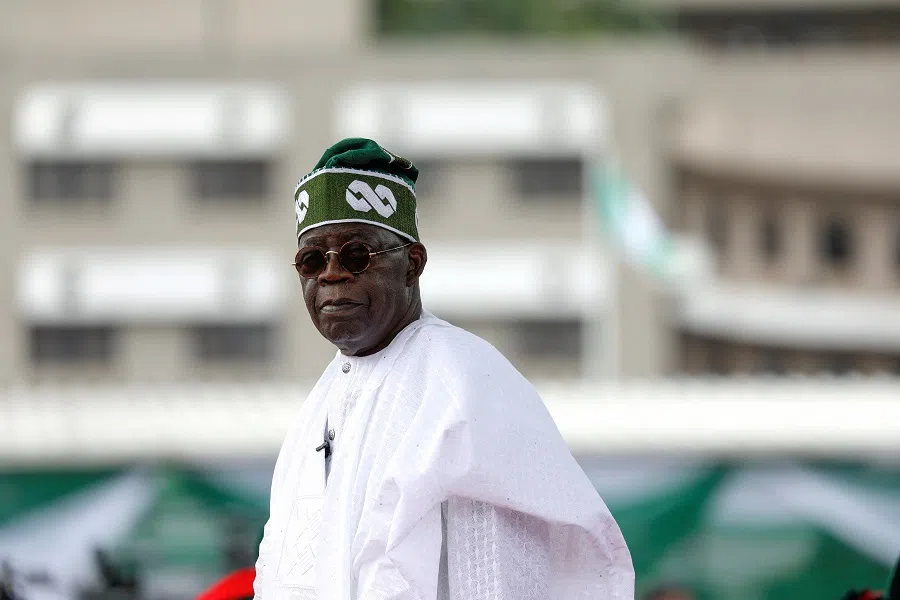
In addition, specific projects — such as the 203-kilometre Kano-Kaduna railway and the massive Mambilla hydroelectric plant — demonstrate the scale of Chinese involvement. Although Nigeria’s aggressive borrowing has raised concerns about the country’s rising public debt, China’s share remains relatively modest, accounting for around 3.94% of Nigeria’s total public debt of US$79.303 billion.
Nonetheless, challenges remain. Disputes, such as those involving the Ogun state and the Chinese firm Zhongfu over debt and asset seizures, underscore the potential pitfalls in these arrangements. Such episodes highlight that while the partnership has the potential to drive substantial infrastructural progress, the terms of engagement must be carefully managed to avoid future complications.
For China, deepening ties with strategic African partners like Nigeria has taken on heightened importance as Beijing seeks to diversify its markets and shore up diplomatic support amid growing tensions with Western economies.
US-China tensions present opportunities and risks
The evolving China-Nigeria partnership exists within an increasingly complex geopolitical landscape shaped by intensifying US-China strategic competition. Following the implementation of “Liberation Day” tariffs by the US and subsequent Chinese retaliatory measures in 2025, both global powers have accelerated efforts to secure diplomatic and economic partnerships beyond their traditional spheres of influence. This great-power competition has significant implications for China’s economic diplomacy in Africa broadly, and its engagement with Nigeria specifically.
For China, deepening ties with strategic African partners like Nigeria has taken on heightened importance as Beijing seeks to diversify its markets and shore up diplomatic support amid growing tensions with Western economies. This strategic imperative could translate into more aggressive investment offerings and financing packages for key infrastructure and industrial projects in Nigeria. China’s willingness to invest in manufacturing capacity and technology transfer initiatives in Nigeria may accelerate as Beijing looks to establish production bases less vulnerable to Western tariff barriers and supply chain restrictions.
From Nigeria’s perspective, the intensifying US-China rivalry potentially creates both opportunities and risks. The Tinubu administration’s multifaceted approach to economic diplomacy — actively courting investment from the US, EU, India and Turkey alongside its engagement with China — positions Nigeria to potentially leverage competition between major powers to secure more favorable terms. However, this balancing act becomes increasingly challenging as pressure mounts to align with either Washington or Beijing on specific technological standards, infrastructure systems, or diplomatic positions.
On the domestic front, President Tinubu’s administration is leveraging this strategic partnership to tackle longstanding developmental challenges. Yet it is crucial to recognise that Nigeria’s economic diplomacy under President Tinubu and Foreign Minister Kashim Shettima is far from one-dimensional. Although Nigeria’s engagement with China remains a key pillar of its economic strategy, it is far from exclusive.
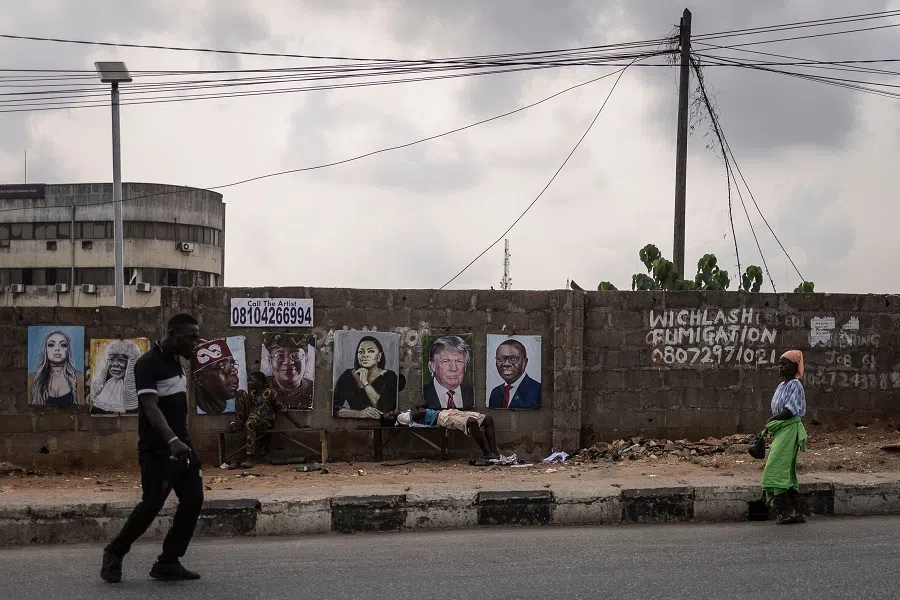
The administration’s eight-point Renewed Hope Agenda, which prioritises both domestic development and international engagement, underscores the importance of economic diplomacy in Nigeria’s foreign policy. The emphasis on economic diplomacy is encapsulated in the “Tinubu Doctrine”, a foreign policy model centred on the themes of democracy, development, demography and diaspora, reflecting Nigeria’s commitment to modernising its institutions and redefining its global position while drawing lessons from other African nations.
Complementary investments in nuclear and renewable energy, coupled with Lagos’s rising profile as the “Africa’s Silicon Valley” are attracting Chinese interest, helping bridge funding gaps and drive technological advancement.
Key industries for partnership
In practical terms, the evolving partnership is already yielding tangible benefits in several key sectors. Infrastructure development remains a primary focus. Under the BRI, Nigeria has launched and completed numerous federal projects for public use — including the country’s first communication satellite, NIGCOMSAT; expansions of international airport terminals in Lagos, Abuja, Port Harcourt and Kano; the Abuja Light Rail Project; modernisation of key railway lines such as Lagos-Ibadan, Abuja-Kaduna, and Idu-Kaduna; the Zungeru Hydroelectric Power project; and the Greater Abuja Water Supply Project, among others.
Energy and industrial development also represent critical areas of collaboration. Nigeria’s oil and gas sector, once its economic cornerstone, has experienced underinvestment and declining production. Chinese capital is now being directed into transformative projects such as the Ogidigben Gas Revolution Industrial Park (GRIP), aimed at rejuvenating energy infrastructure and diversifying the industrial base.
Efforts to revamp gas processing facilities further illustrate the intent to leverage Chinese expertise and funding to address Nigeria’s energy challenges. These initiatives are designed not only to remedy current infrastructural deficits but also to lay the groundwork for a more diversified economy less reliant on oil revenues.
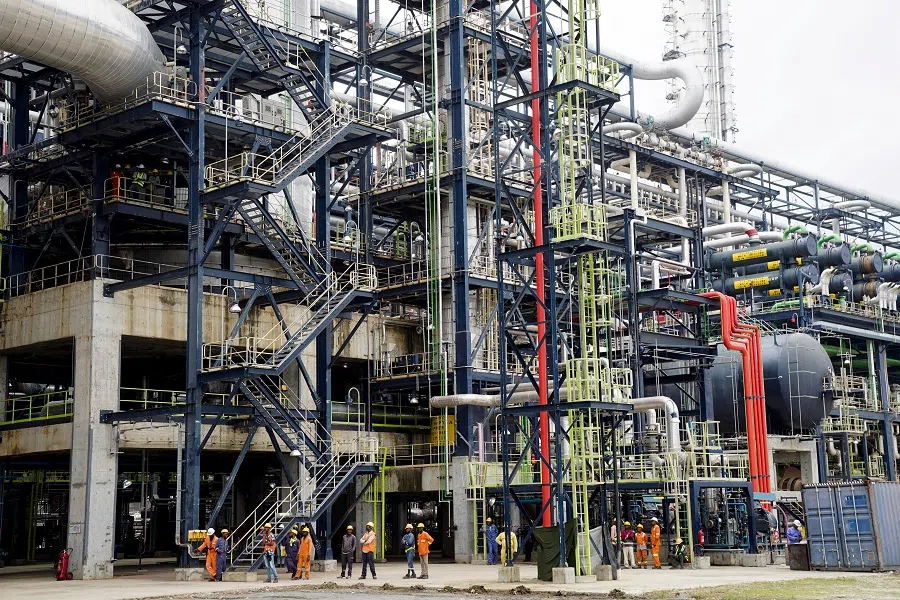
The partnership extends to clean energy and technological innovation as well. A 7.6 billion euro green hydrogen energy deal signed in Uyo marks a bold step toward establishing Nigeria as a hub for sustainable energy projects. Complementary investments in nuclear and renewable energy, coupled with Lagos’s rising profile as the “Africa’s Silicon Valley” are attracting Chinese interest, helping bridge funding gaps and drive technological advancement.
... rising poverty and diminishing purchasing power driven by inflation led to a drop of US$2.6 billion in trade volume in just one year, marking an 11.5% decline in 2024 compared to the previous year.
Addressing persistent challenges
However, challenges persist that could undermine the long-term benefits of this dynamic partnership. In 2023, trade volume reached an impressive US$22.6 billion — one of the highest in Africa. Yet rising poverty and diminishing purchasing power driven by inflation led to a drop of US$2.6 billion in trade volume in just one year, marking an 11.5% decline in 2024 compared to the previous year.
This decline reflects not only a persistent trade imbalance in favour of China, where manufactured goods dominate Nigeria’s imports while raw materials form its exports, but also structural challenges that have weakened domestic industries.
The existing trade imbalance has significantly impacted sectors such as textiles — a once-thriving industry that employed hundreds of thousands of Nigerians — while structural issues like unreliable electricity and underinvestment in local manufacturing further exacerbate the problem.
Quality control and regulatory oversight remain additional hurdles. Concerns over substandard specifications of Chinese goods have affected consumer confidence and contributed to broader economic vulnerabilities. Although there are calls for stricter trade agreements enforcing international quality standards, efforts are often undermined by corruption within Nigerian agencies.
Beyond economic concerns, geopolitical and security dimensions also influence the relationship. Nigeria’s strategic significance in West Africa — bolstered by its large population, natural resources, and military capabilities — makes it a key player in China’s regional ambitions. Chinese investments here are not solely about economic returns; they also serve broader geopolitical goals, such as stabilising the Sahel region and countering Western influence.
This dual focus is evident in Nigeria’s balancing act between its economic engagement with China and its security cooperation with traditional allies like the US, as Nigeria increasingly relies on China for arms and infrastructural investments.
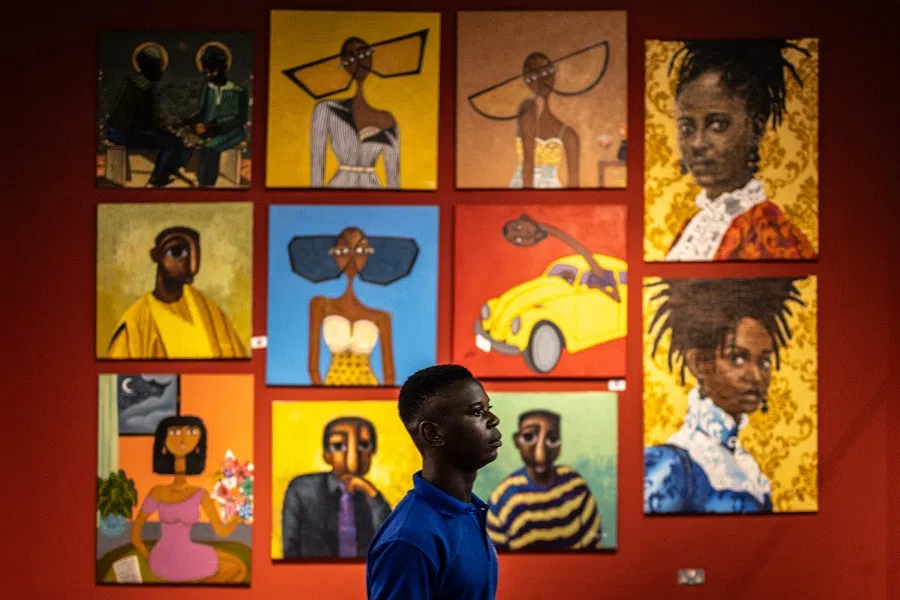
Moreover, Nigeria is actively asserting its agency in the relationship. Rather than passively accepting Chinese investments, the Tinubu administration is seeking to shape the terms of engagement through economic diplomacy. By enhancing domestic investment environments and fostering collaboration between state governments and the private sector, Nigeria aims to transition its relationship with China from being purely trade-centric to truly development-driven.
Alongside its engagement with China, Nigeria is striving to expand ties with the EU, securing preferential market access for key sectors, and formally joined the BRICS economic bloc in January 2025 — steps to bolster its bargaining power and strategic autonomy.
For China, the challenge lies in ensuring that its investments are not only profitable but also sustainable, socially responsible and aligned with Nigeria’s long-term development goals.
The road ahead
The future of the evolving China-Nigeria relationship will depend on both nations’ ability to navigate internal challenges and leverage their complementary strengths. For Nigeria, the task is twofold: securing the necessary investments for infrastructural and industrial modernisation while addressing domestic issues such as regulatory shortcomings and corruption. For China, the challenge lies in ensuring that its investments are not only profitable but also sustainable, socially responsible and aligned with Nigeria’s long-term development goals.
Ultimately, Nigeria’s proactive foreign policy under President Tinubu, marked by the diversification of international partnerships and sustained domestic reforms, positions it as not merely a recipient of Chinese investments but as an active architect of its own development destiny. As both nations work to address persistent trade imbalances, regulatory challenges, and the broader complexities of a shifting geopolitical landscape, their partnership may well exemplify a new era in international diplomacy where progress is founded on balanced, reciprocal engagements.


